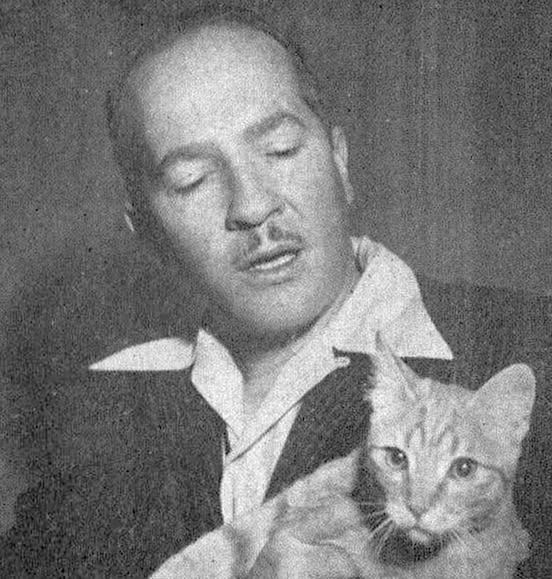Who is Robert A. Heinlein?
If you are a science fiction enthusiast, chances are you have heard of Robert A. Heinlein. He is one of the most-respected science fiction writers. He, along with other luminaries Isaac Asimov and Arthur C. Clarke, were known as the “Big Three.”
Robert A. Heinlein is credited as being one of the literary figures who developed modern science fiction to its more sophisticated, and all-encompassing form.
Heinlein’s style of science fiction goes beyond the “hard” science fiction — something that deals with actual science and technology. He touched on subjects that deal with society, within the framework of science fiction. This variation of science fiction is called “soft science” and Heinlein is recognized as one of its pioneers.
Some memorable and meaningful Robert A. Heinlein quotes
“A competent and self-confident person is incapable of jealousy in anything. Jealousy is invariably a symptom of neurotic insecurity.”
“Love is that condition in which the happiness of another person is essential to your own.” (from Stranger in a Strange Land)
“How can I possibly put a new idea into your heads, if I do not first remove your delusions?” (from Life-Line)
“I am free, no matter what rules surround me. If I find them tolerable, I tolerate them; if I find them too obnoxious, I break them. I am free because I know that I alone am morally responsible for everything I do.”
“There ain’t no such thing as a free lunch.” (from The Moon is a Harsh Mistress)
“A human being should be able to change a diaper, plan an invasion, butcher a hog, conn a ship, design a building, write a sonnet, balance accounts, build a wall, set a bone, comfort the dying, take orders, give orders, cooperate, act alone, solve equations, analyze a new problem, pitch manure, program a computer, cook a tasty meal, fight efficiently, die gallantly. Specialization is for insects.” (from Time Enough For Love)
Early struggles
However, his actual early ambitions were to join the US Navy. He did graduate from the Naval Academy in 1929. Later he received the rank of Ensign and by the early 1930s he served in the US Navy. However, his Navy career was cut short by pulmonary tuberculosis and he was forced into early retirement.
After his naval career, Heinlein sought other jobs such as a real estate employee and a worker at a mining company. He also had an active political career. He worked in and supported the campaign End Poverty in California which also inspired him to seek a position for the California State Assembly in the late 1930s, but he was defeated.
Rise in literary career
Heinlein’s failed political ambitions didn’t leave him impoverished, as he had a small pension from his early retirement from the Navy. However, he did have financial struggles.
In the midst of his financial difficulties (especially with mortgage payments), Heinlein decided to try his luck at writing. Fortunately for him, his new found career helped him to pay off his mortgage. Following the end of the Second World War, his writing career flourished. It began when his short story “The Green Hills of Earth” was first published in The Saturday Evening Post in 1947. This first short story helped him break into the mainstream. It also eventually gained him a name and reputation in the world of science fiction.
Heinlein was known as a controversial figure for his liberal views. He was both admired and criticized because of them. Not surprisingly, however, his libertarianism is evident in many of his works. Other than political themes, he also touched on subjects that dealt with free love and other topics often avoided by other writers of his time. He set new standards for the genre, away from usual “space opera” science fiction into a more human and social form. His works often emphasized the importance of personal freedom and individualism.
As you might expect, as with many writers, Heinlein was a lover of words. He invented words such as “grok,” “waldo,” “space marine” and “TANSTAAFL” (There ain’t no such thing as a free lunch), which have become part of the English language.
Heinlein died on May 8, 1988, in Carmel, California. Many of his writings appeared in posthumous circulations such as For Us, The Living, Grumbles from the Grave, and Tramp Royale.
A large part of Heinlein’s works are now archived at the University of California. They can be found in its Special Collections department. The archives include manuscripts, letters as well as photographs and miscellaneous items. Many of these are now digitized and can be found on the online archives: http://heinleinarchives.net.
Notable works
Robert Heinlein had written a lot in his illustrious and prolific writing career. His writings include several novels (including his “juvenile” editions), short stories, and many non-fiction writings, as well. Heinlein was the recipient of several Hugo awards and nominations for his writings. The following lists only a few of Heinlein’s most notable works:
Novels:
- Tunnel in the Sky (1955)
- Double Star (1956)
- The Door Into Summer (1957)
- Have Space Suit — Will Travel (1958)
- Starship Troopers (1959)
- Stranger in a Strange Land (1961)
- Farnham’s Freehold (1964)
- The Moon Is a Harsh Mistress (1966)
- Time Enough For Love (1973)
- Friday (1982)
- Job: A Comedy of Justice (1984)
- The Cat Who Walks Through Walls (1985)
- For Us, The Living: A Comedy of Customs (written in 1939; posthumously published in 2003)
Short stories (fiction):
- “Life-Line” (1939)
- “Misfit” (1939)
- “The Green Hills of Earth” (1947)
- “The Man Who Sold the Moon” (1950)
Useful related links
- Heinlein Society
- Robert A. Heinlein – Wikipedia, the free encyclopedia
- Robert A. Heinlein (Author of Stranger in a Strange Land)
About Robert A. Heinlein: Robert Anson Heinlein was an American novelist and science fiction writer. Often called the dean of science fiction writers, …

